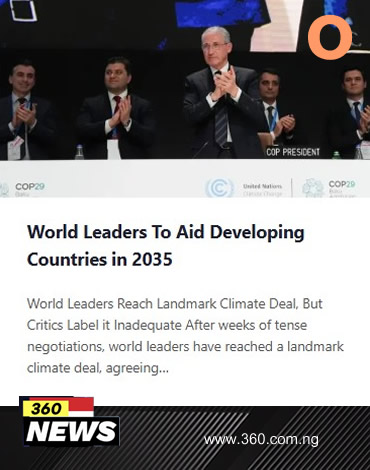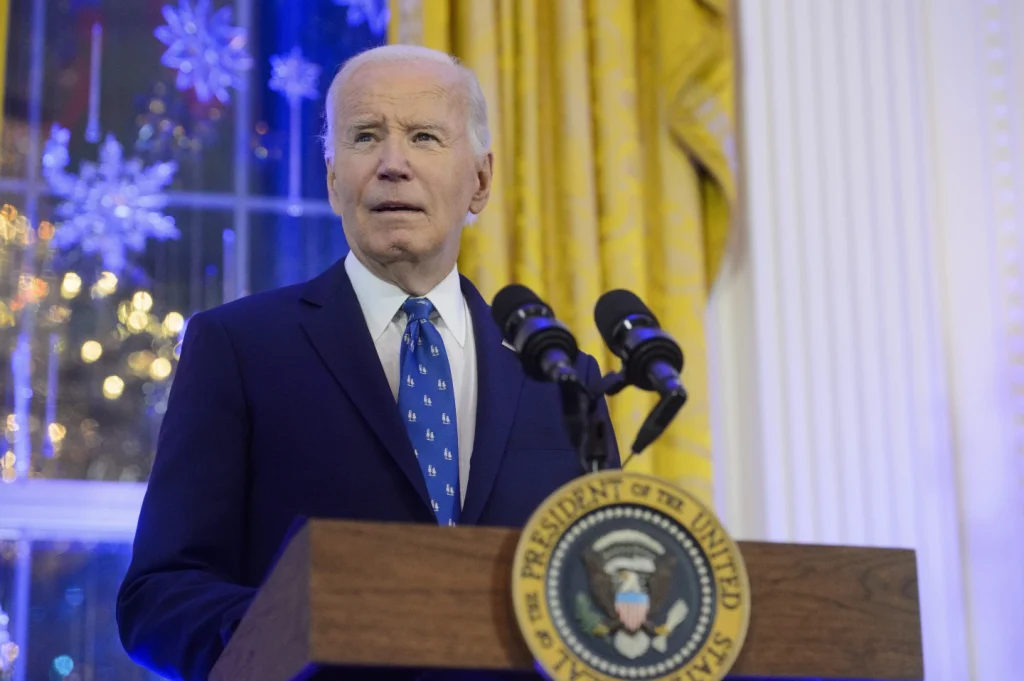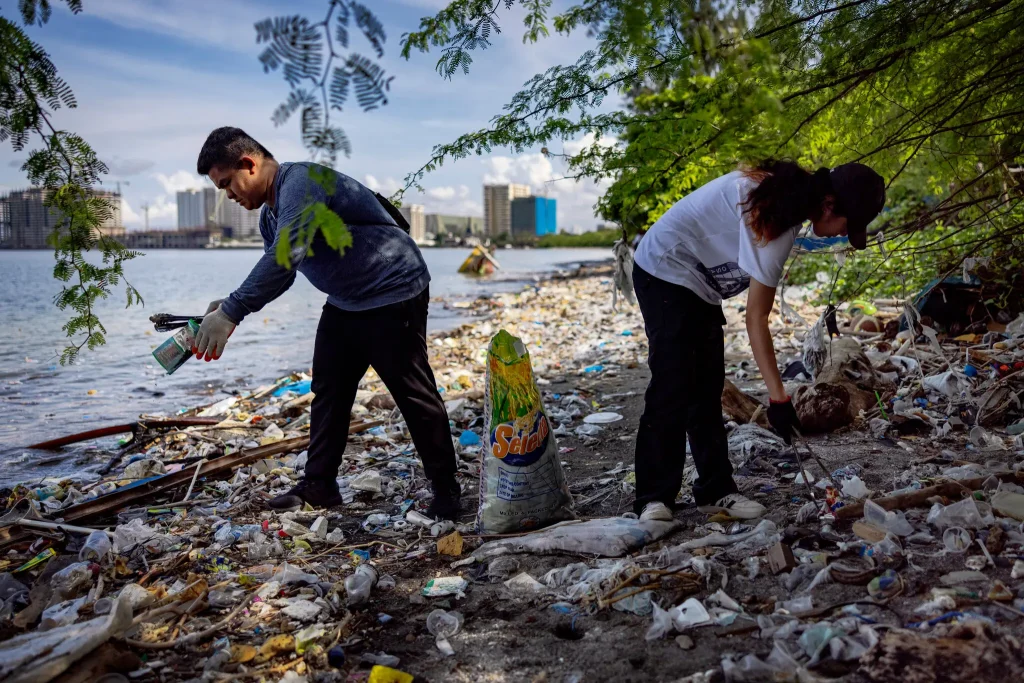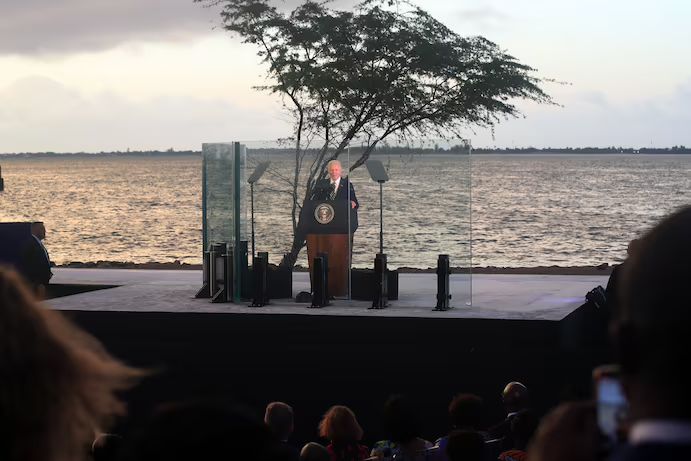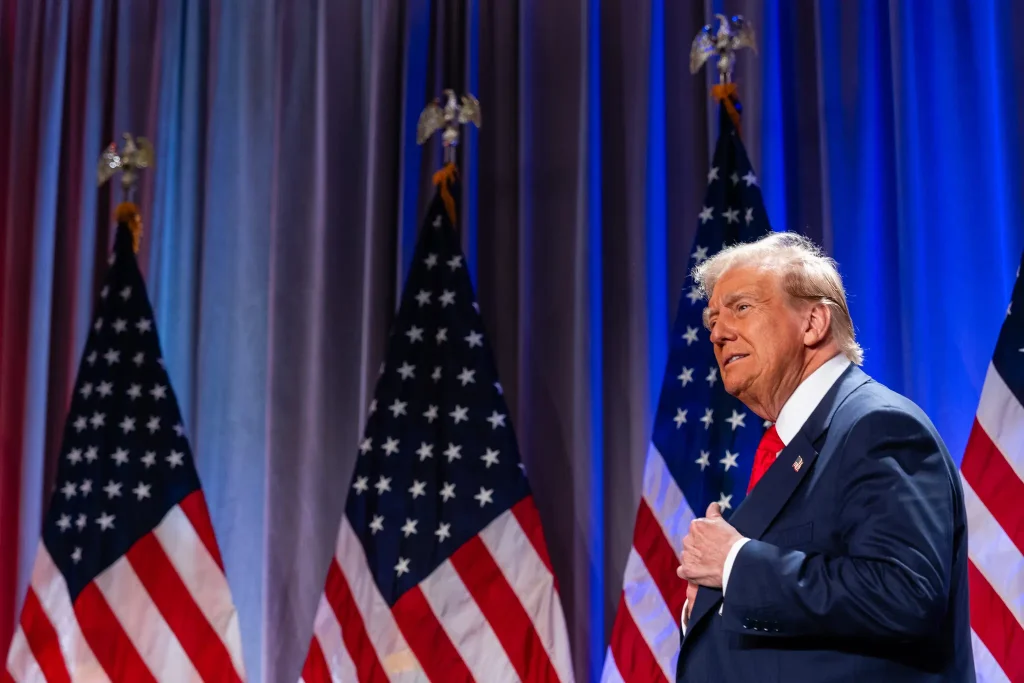World Leaders To Aid Developing Countries in 2035
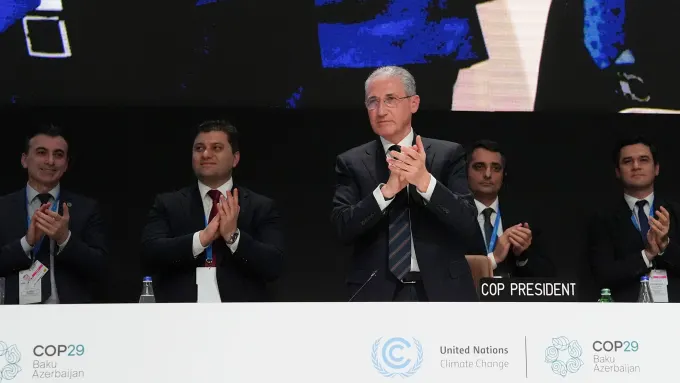
World Leaders Reach Landmark Climate Deal, But Critics Label it Inadequate
After weeks of tense negotiations, world leaders have reached a landmark climate deal, agreeing to provide $300 billion annually to developing countries by 2035. The agreement, made at the COP29 summit in Baku, Azerbaijan, aims to help vulnerable nations cope with the devastating impacts of climate change and transition to clean energy.
However, many developing countries have criticized the pledged amount as grossly inadequate. The Global South, comprising countries in Africa, Latin America, Asia, and Oceania, has long been advocating for more substantial financial support from the Global North, which includes wealthy nations in North America and Europe.
The new deal requires wealthy countries to provide $300 billion annually by 2035, consisting of public and private finance. Although the agreement mentions a wider ambition to scale up to $1.3 trillion, developing nations had pushed for a more significant commitment from rich countries.
The COP29 summit was marked by boycotts, political spats, and celebrations of fossil fuels, sparking fears that the talks would collapse. The G77 group of developing countries had demanded $500 billion, but richer nations deemed this unrealistic.
Critics argue that the deal is a flawed compromise, reflecting the challenging geopolitical landscape. The agreement’s outcome has been met with widespread criticism from climate groups, who claim it offers false hope to those already affected by climate disasters.
“This deal is a betrayal of the trust placed in world leaders to address the climate crisis,” said a spokesperson for the Climate Action Network. “The amount pledged is a drop in the ocean compared to what is needed to support vulnerable communities.”
The climate crisis has already had a devastating impact on communities around the world. Rising sea levels, more frequent natural disasters, and changing weather patterns are just a few of the many consequences of climate change.
Developing countries, which have contributed the least to greenhouse gas emissions, are often the most vulnerable to the impacts of climate change. They need significant financial support to adapt to the changing climate, transition to clean energy, and build resilience against climate-related disasters.
The COP29 summit was seen as a critical opportunity for world leaders to demonstrate their commitment to addressing the climate crisis. While the deal reached is a step in the right direction, it falls far short of what is needed to address the scale and urgency of the crisis.
As the world continues to grapple with the challenges of climate change, it is clear that much more needs to be done to support vulnerable communities and reduce greenhouse gas emissions. The outcome of the COP29 summit serves as a reminder that the fight against climate change is far from over.
Picture News
